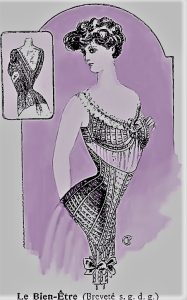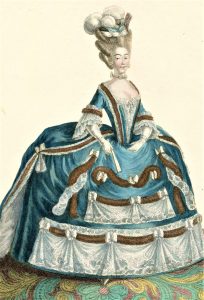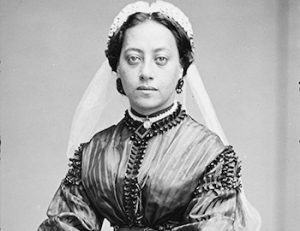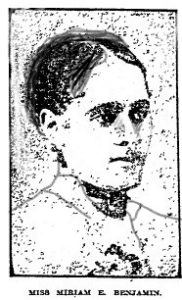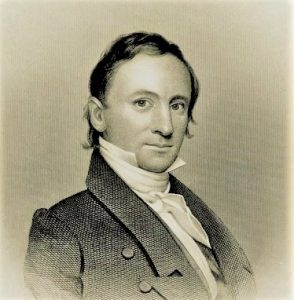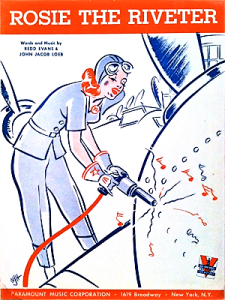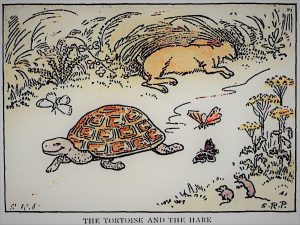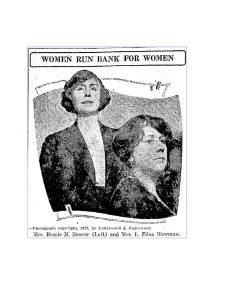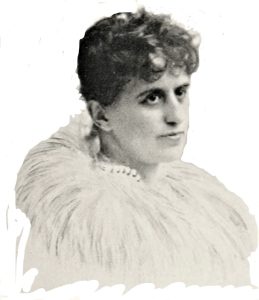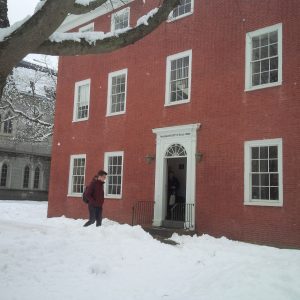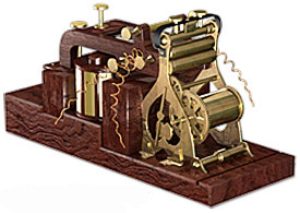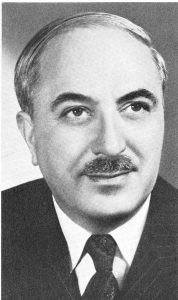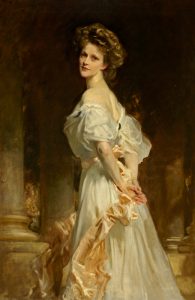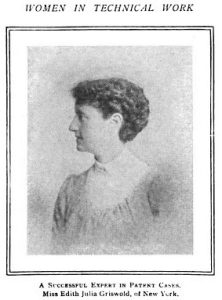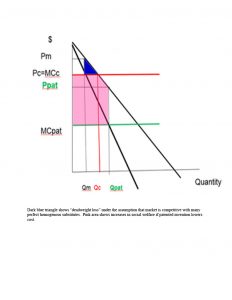According to Voltaire, one might discover women who were accomplished in war or science, but it was quite impossible to find any women inventors. Over eight thousand inventions were patented by French women through 1901, ranging from the not unexpected corsets and coffee makers, to condensation machines, artillery and anatomical models.
Notable Women Inventors in Britain
Fans of the history of technology can quickly name a dozen significant British inventors, but very few would be able to identify any women with noteworthy discoveries. Women who could circumvent institutional barriers tended to come from rather privileged backgrounds, or to have social connections – patent rosters featured many aristocrats, including a cotillion of countesses, baronesses, and even a duchess or two. However, studies of female patentees demonstrate that individual initiative could be just as potent as wealth, patronage, and self-promotion in generating technological innovation and social change.
The Mystery of the Missing Minority Millionairess
Usually reputable sources like the Guinness World Record claim that Madam C. J. Walker was the “first self-made millionairess” in the United States. However, Walker was not the first minority businesswoman who acquired enormous wealth. Numerous American Indians, Asians and black women have prospered through their own initiative and entrepreneurship, from the founding of the Republic.
A Pioneering Black Woman Patent Attorney
Like millions of innovative individuals, MIRIAM E. BENJAMIN (1861-1947) was active in multiple inventive markets, as the patentee of two inventions, and assignee on another. However, an overlooked and unique contribution is that she was the first black woman who practiced as a patent attorney. Miriam E. Benjamin was born in South Carolina to a […]
Thomas Edison and the Bowdoin Inventors
Who invented the light bulb? Isaac Adams Jr., Bowdoin class of 1858, created an incandescent light bulb with a carbon filament 14 years before Thomas Edison. However, he failed to persevere and produce a scalable innovation that would benefit consumers in the market. Instead, two highly-educated mathematical scientists from the class of 1875, Francis Upton and Charles Clarke, provided invaluable systematic research at Edison’s lab in Menlo Park. As such, without the contributions of Bowdoin inventors, the discovery and diffusion of electrical lighting would have been significantly retarded.
Who was the First U.S. Economics Professor? Samuel Newman, of Bowdoin College
Prof. Samuel P. Newman (appointment in Political Economy, 1824-1839). Samuel Phillips Newman and Bowdoin Economics In 1824, Bowdoin was the first American College to officially introduce a faculty position dedicated to instruction in Economics (or Political Economy, as it was then known). The University of Virginia in 1826, and Brown University in 1828, followed Bowdoin, […]
Old School? Apprenticeships in the 21st Century
The word apprentice conjures up visions of sorcerers and medieval guilds (and, in my case, my great-grandmother who learned the goldsmith’s trade through a family apprenticeship). However, “new collar” apprenticeships seem destined to become the most effective means of human-capital acquisition for the twenty first century, as they have been for millenia.
In Search of Hetty Green: Self-Made Women Millionaires
In 1887, the Los Angeles Times declared, “This is an age not only of millionaires, but of millionairesses as well.” Wealthy women “worth their weight in gold” have existed from the beginning of American history, but these entrepreneurs have often remained invisible to scholarship and to financial history.
Patent Waivers (or “Don’t know much about history…”)
I have two words to describe patent waivers: arbitrary, irrational and unconstitutional. This proposal displays a shocking ignorance of American history and basic economics. The most fundamental principle of a free market system is secure property rights. Someone who grows potatoes has property rights in them; why should patentees be treated worse than potato planters?
American patent policy is vested in the U.S. Constitution, and its most fundamental principle is that “A patent is property of the highest order.” The Founders intended that patent rights should be absolute, and they explicitly rejected compulsory licenses, working requirements, and any other constraints on inventive property.
Is Technology a Race? Patents and National Security
Metaphors matter. Is technology a race, or a war with an associated D-day? References to “the race to 5G” and “innovation wars” are based on a zero-sum model of technological innovation, where there are glorious outcomes for “winners” and dire consequences for “losers.” According to this ahistorical perspective, the leader takes all, and for the rest of the field, life promises to be poor, nasty, brutish, and short. In order to avoid this doomsday scenario, previously unthinkable measures become acceptable in the name of “national security.”
Hanami: Cherry Blossom Time, in Perpetuity
Can you guess the location of the International Cherry Blossom Festival? Wrong! it is held in Macon, Georgia, which is allegedly known as the “Cherry Blossom Capital of the World.” However, the Japanese undoubtedly should own the geographical indication rights to Sakura. Sakura are treasured as a reminder of the fleeting nature of life and the impermanence of the things we cherish most. So there is a decided irony to writing a post about cherry blossoms that will be captured in digital format in perpetuity.
Banking on Women
(Yet another) First Women’s Bank opened in 2021, claiming to be the “nation’s first women-founded, women-owned, and women-led bank dedicated to closing the gender equity gap in access to capital.” But it is easy to demonstrate that the current First Women’s Bank is far from first on each and all of these counts.
Notable Women Inventors of Maine
The surge of new inventions and innovations in nineteenth century America transformed the world to an extent that arguably remains unmatched today. Even among the New England states known for their “Yankee ingenuity,” Maine inventors surpassed their peers. Among the few female entries in the National Inventors Hall of Fame are Helen Blanchard and Margaret Knight, celebrated because of their successful industrial machines. But the typical woman inventor productively directed their attention to supposedly minor “feminine inventions” like dress charts and kitchen tools that improved the lives of other women and their families.
Back to School for the “Spring” Semester (1861)
How many aspects of life at Bowdoin College have remained unchanged since the days when faculty, president, and students all lived in Mass Hall? In January 2022, we can still fervently empathize with this account of the “spring” semester in the Journal of John Deering, Jr., class of 1864: “Find myself back to this honored institution after an absence of nine weeks… Nothing can be seen except a boundless expanse of snow… But after all, I suppose I can pursue my studies and carry out the objects for which I was sent just as well as if the grass were green and the birds singing.”
Looking Backward: From 5G to the Telegraph
The advent of 5G cellular technology has induced imaginative speculations about spectacular virtual universes, Humans 3.5 artificial intelligence, and an Internet of Things that will trigger “smart houses” and even smarter cities. What lessons can earlier telecommunications inventions offer? The focus here is on five issues regarding 5G: the social savings from new innovations; business to business (B2B) relative to consumer markets; private sector versus government-led initiatives; net neutrality; and the right to privacy.
U.S. Patents: A Play in 10 Million Acts
Patents represent an invaluable curated stock and flow of cultural knowledge, dating back to the founding of the Republic. Moreover, every one of the ten million patents filed in the USPTO generates a word cloud of information about a person or team and their individual creativity. According to Lawrence Langner, founder of Ladas & Parry, “our industrial supremacy is due largely to the striking differences which exist between our patent system and the patent systems of the rest of the world…America is the fountainhead of invention; exports the products of its brains in the form of foreign patents; and through its inventive products, is spreading democratic ideals throughout the world.”
Crypt-ic Tales
Don’t look now, but the life of the book club is the undead. Subscribers to streaming can rejoice that Elizabeth Bennet is being resuscitated in the realm of Pride and Prejudice and Zombies. Even books from the nineteenth century are being exhumed to satisfy the current craving. The genre in its current incarnation shows a great deal of variance. Six feet below average molders such entrants as Deadworld. No doubt there is a good explanation for why vampires are clustered in the American South, but please don’t text me about it. Replace “zombie virus” with covid-19, and these epics are immediately transformed into documentaries.
Women and Wealth in the New Gilded Age
Are we currently living in a new Gilded Age embodied by the multi-billionaires of the Forbes 400, with their excesses of utopian cities and space tourism? Inclusion on The Forbes 400 list for 2021 requires net worth of at least $2.9 billion. However, these data underestimate women’s achievements, and conceal an underlying pattern of increasing entrepreneurial opportunities, socioeconomic mobility, and philanthropy by “robber baronesses.”
Travelling Light
Any fan of Adam Smith believes in specialization and the division of labour, which implies the efficiency of “rational ignorance.” In keeping with this principle, I know a lot about economics, statistics, history and technology; but very little (okay, nothing) about physics, chemistry, and engineering. I am familiar with a slide rule and trigonometry, and […]
Patent Priority: the First Woman Patent Lawyer
Who was the first American woman patent lawyer? Novelty and priority in time are central to patent law, and it is especially apt to consider the pioneers who expanded diversity in the field. For those who think they know the answer to this question, this post will be surprising. She was Edith Julia Griswold (1863-1926); […]
Publish and Perish
Montparnasse, Paris on a chilly winter afternoon Murder can be elegant, but only if it takes place in foreign lands. The most effective literature in this realm evokes a sense of place that is as central as the narrative or characters. This is the premise that guides my reading of murder mysteries and modern detective […]
Reading on Location
The first thing I do in a new location is to secure a library card (no, this essay is not about Libraries I Have Known, although it could be). It is like going home, to review the familiar faces of volumes long cherished; this sense of physical place and proximity is inevitably absent from e-books. […]
Copyrighting the Cultural Revolution in China and America
Like China, Americans were notorious for cultural piracy and weak copyrights. The U.S. finally acknowledged international copyrights when the balance of trade in cultural goods shifted in their favour. Similarly, China today is strongly enforcing copyrights to protect its emerging global leadership in cultural creativity.
The (New) Cultural Revolution in China
A few years ago, I rated on Netflix over 1000 movies with which I was familiar. The top 10 included (in no particular order): Bladerunner, Woman in the Dunes (Suna no onna), Les Parapluies de Cherbourg, A Bout de Souffle, Pan’s Labyrinth, Das Leben der Anderen, Casablanca, Metropolis, 2001: a Space Odyssey, Chinatown. (Lord of […]
Women and Innovation in Developing Countries
Round table discussion of gender, patents, open source, and technology policy in India. Participants include Zorina Khan (the moderator) and leading Indian academics, patentees, entrepreneurs, and innovators.
Who’s Afraid of Standard Oil?
The breakup of Standard Oil Company in 1911 continues to be wielded as a bludgeon to threaten successful firms, and as a banner to encourage populists in their forays against free markets. Consider the recent Executive Order on Competition: “When past presidents faced similar threats from growing corporate power, they took bold action. In the […]
Are Patents Monopolies?
Hostility to patents is associated with the notion that patents are monopolies that harm social welfare. Legal history and empirical evidence together demonstrate that this claim is based on a fundamental misunderstanding of the economics of monopoly, and of property rights in patented inventions.
Between the Covers
I’ve always thought that being in college is the greatest obstacle to a good education, because nobody has time to read outside of class. Economists are not fond of Thomas Carlyle, a curmudgeon who called Economics “The Dismal Science,” and classed us with “sophists and calculators.” But I do agree with him that “What we become depends on what we read after all of the professors have finished with us. The greatest university of all is a collection of books.”
An Essay in Idleness
Sushi in Boston means O Ya, sushi in New York means Soto, and sushi in Maine means Miyake of Portland. However, I am not intolerant, so I did not hesitate to meet a cordial Asian Studies Professor (ASP) for lunch at Little Tokyo restaurant, in “downtown” Brunswick. My theory is that, in the absence of other information, one should […]
